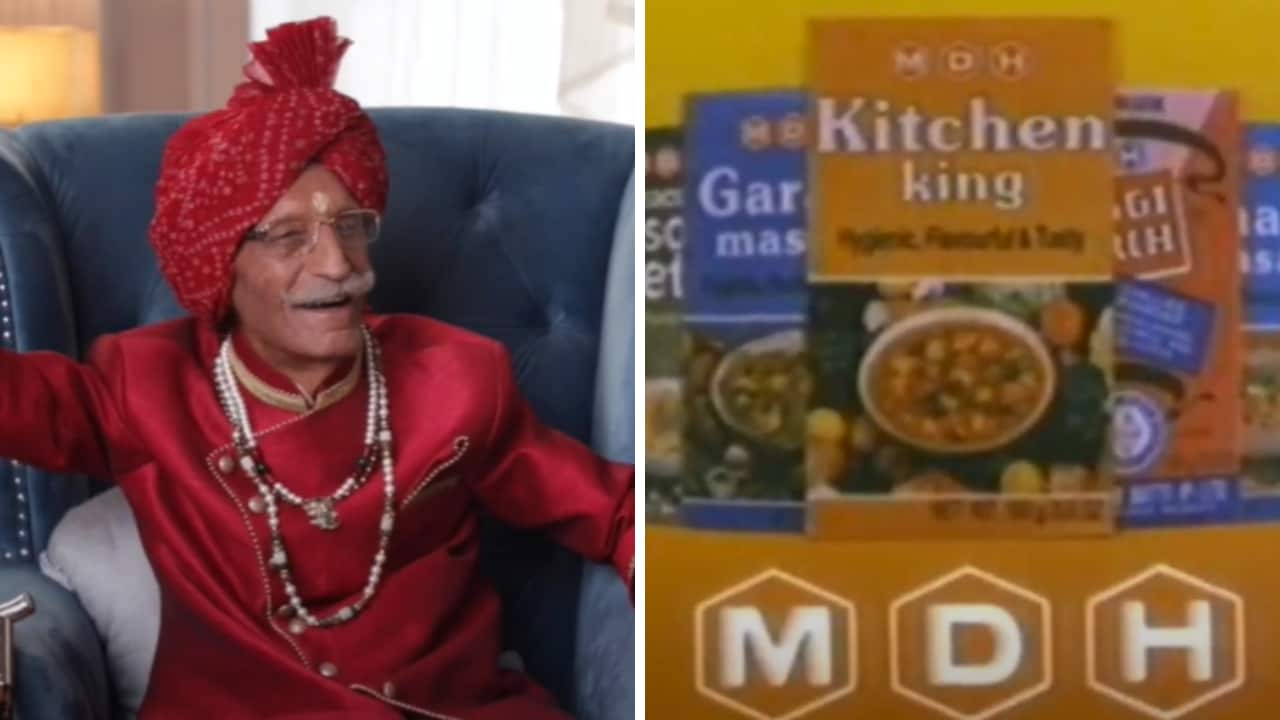What is your favourite spice? Golden turmeric, pungent sharp red chilli, tangy dry mango or the sweet aromatic cinnamon perhaps. Just some of the innumerable spices that frequent the Indian kitchen. And equally plentiful are the spice mixtures or masala combinations that make for a mouth-watering dish.
For decades, households bought fresh spices, then dried and ground them into powders, storing them for a year, or blending them just before cooking a dish. Over time, with changing lifestyles, pre-packed store-sold spices and masalas became popular for their convenience.
Today, grocery stores often have entire shelves stacked with local and national spice brands that promise great taste and flavour to food. The journey of how MDH established itself in this industry is remarkable. MDH stands out as a success story, which is intertwined with the life and times of Mahashay Dharampalji, the entrepreneur.
Mahashay Dharampalji Gulati: The early years
Mahashay Dharampalji Gulati was born in Sialkot (now in Pakistan) in 1923 and spent his formative years there.
His father, Mahashay Chunnilal Gulati, had opened a store in 1919 named “Mahashian Di Hatti” to sell ground spices. Dharampalji started helping his father with the spice business, after his unsuccessful attempts at selling mirrors and other household items. Deggi Mirch became a well known product and the business grew.
Partition in 1947 brought new challenges into their lives as the family migrated to India. Dharampalji eventually moved to Delhi and rented a place to stay.
Dharampalji, an entrepreneur at heart, initially invested Rs 650 in a tonga (a two-wheeled carriage pulled by a horse) and started transporting passengers from the New Delhi railway station to areas like Qutab Road and Karol Bagh. But he soon realised that it was not a very profitable business.
He eventually bought a small wooden shop at Ajmal Khan Road at Karol Bagh and started his family business of spices anew, under the “MDH” name.
Rise of MDH: from strength to strength
Dharampalji was ahead of his times in his practice of selling pre-ground and pre-made spice mixes. He would go home to home to deliver the orders to the customers.
He began selling turmeric in jars. Deggi Mirch and Garam Masala soon followed. Purchasing pre-prepared packaged masalas started becoming popular and MDH got the reputation of being “Sialkot Deggi Mirch wale”.
Dharampalji did all the grinding and packing of his spices from his small shop. Because of the time-consuming and tedious procedure, the business later considered switching to mechanically ground spices instead. The foundation for the rise of MDH was laid, through the determination, hard work, and foresight of Dharampalji.
Business success and expansion came from his innovative approach to packing ground spices, and his dependable supply chain, together with a focus on quality and purity of spices.
Advertising
A conventional advertising approach with a catchy jingle promoted MDH products in an early TV commercial. MDH advertised its Kitchen King, Garam Masala, Chana Masala and Deghi Mirch powder packs, starring Shafi Inamdar and Neena Gupta. The jingle stated that the tantalising aroma of the masala drew people to the food.
Dharampalji’s entry into the advertising of his own brand gave it a fillip. It all started when an actor portraying the father of the bride in a MDH TV commercial didn’t show up for work. Dharampalji took up the role. Since then, he was a constant fixture in all MDH advertisements, becoming the face of the brand he had created. This was an unconventional approach to creating brand awareness.
Apart from the memorable jingle, the presence of Dharampalji in the ads became notable too. He became the “Dadaji” figure in the commercials, dressed in traditional wear and adorned with a string of pearls.
Dharampalji blessed newly weds and youngsters in some MDH TV commercials. In another TV commercial, he was shown personally examining the spices, as the business expanded to overseas markets. In one of the TV commercials the ever smiling “dadaji” sat with his signature pearl necklace, while an actor listed the different dishes in which Kitchen King masala can be used. This commercial celebrated “100 years of affinity till infinity” from 1919 till 2019.
The “Asli masale sach sach, MDH, MDH” jingle ended with the tagline “the real spice of India”. The commercials effectively conveyed the brand’s essence: the true goodness of the spices. The “dadaji” image of Mahashay Dharampalji added a real world feel of family and home, highlighting the authenticity of spices through years of wisdom. His presence acted as a common link that connected various MDH commercials through the years.
Dharampalji got recognition and adoration from his many customers, “I am not addicted to anything but love”. MDH’s rise mirrored his own rise to advertising stardom.
Advertising that creates distinctiveness by using the promoter of the business has been used in other industries and countries as well. A memorable example is Dollar Shave Club’s advertising featuring its founder, Michael Dubin. (Dollar Shave Club’s advertising is also distinct for its use of a tone of voice that mocks typical advertising.)
MDH: the road ahead
MDH spices and blended masalas are today sold throughout the country and exported worldwide. MDH has expanded by establishing large automatic plants for its spices, emphasising R&D and quality.
The person who started from humble beginnings and took the business to new heights, Mahashay Dharampalji, passed away in 2020. His legacy of providing authentic spices and spice blends to the masses lives on. And the memory of him too, as the “Dadaji” in the iconic MDH TV ads.
Subodh Tagare is an Associate Professor at IMT Nagpur, where he teaches courses on marketing. Prior to IMT, Subodh was the marketing director at American Power Conversion/ Schneider Electric for South Asia.
S Vejay Anand consults with organizations on business strategy and marketing. He has also been an entrepreneur in the food and pet care spaces. Earlier he was President at Coffee Day and COO at USPL.
